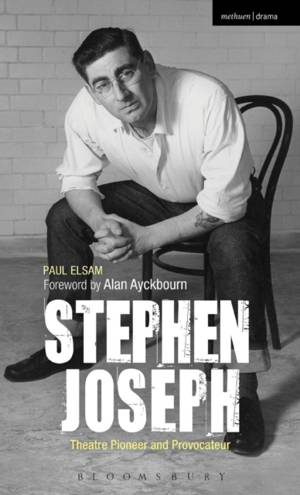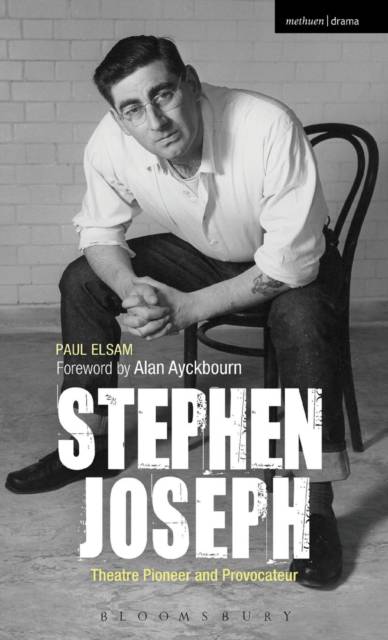
- Afhalen na 1 uur in een winkel met voorraad
- Gratis thuislevering in België vanaf € 30
- Ruim aanbod met 7 miljoen producten
- Afhalen na 1 uur in een winkel met voorraad
- Gratis thuislevering in België vanaf € 30
- Ruim aanbod met 7 miljoen producten
Zoeken
Omschrijving
A 1967 obituary in The Times labelled Stephen Joseph 'the most successful missionary to work in the English theatre since the second world war'. This radical man brought theatre-in-the-round to Britain, provoked Ayckbourn, Pinter and verbatim theatre creator Peter Cheeseman to write and direct, and democratised theatregoing. This monograph investigates his forgotten legacy.
This monograph draws on largely unsorted archival material (including letters from Harold Pinter, J. B. Priestley, Peggy Ramsay and others), and on new interviews with figures including Sir Alan Ayckbourn, Trevor Griffiths and Sir Ben Kingsley, to demonstrate how the impact on theatre in Britain of manager, director and 'missionary' Stephen Joseph has been far greater than is currently acknowledged within traditional theatre history narratives. The text provides a detailed assessment of Joseph's work and ideas during his lifetime, and summarises his broadly-unrecognised posthumous legacy within contemporary theatre. Throughout the book Paul Elsam identifies Joseph's work and ideas, and illustrates and analyses how others have responded to them. Key incidents and events during Joseph's career are interrogated, and case studies that highlight Joseph's influence and working methods are provided.
This monograph draws on largely unsorted archival material (including letters from Harold Pinter, J. B. Priestley, Peggy Ramsay and others), and on new interviews with figures including Sir Alan Ayckbourn, Trevor Griffiths and Sir Ben Kingsley, to demonstrate how the impact on theatre in Britain of manager, director and 'missionary' Stephen Joseph has been far greater than is currently acknowledged within traditional theatre history narratives. The text provides a detailed assessment of Joseph's work and ideas during his lifetime, and summarises his broadly-unrecognised posthumous legacy within contemporary theatre. Throughout the book Paul Elsam identifies Joseph's work and ideas, and illustrates and analyses how others have responded to them. Key incidents and events during Joseph's career are interrogated, and case studies that highlight Joseph's influence and working methods are provided.
Specificaties
Betrokkenen
- Auteur(s):
- Uitgeverij:
Inhoud
- Aantal bladzijden:
- 224
- Taal:
- Engels
- Reeks:
Eigenschappen
- Productcode (EAN):
- 9781408185674
- Verschijningsdatum:
- 5/12/2013
- Uitvoering:
- Hardcover
- Formaat:
- Genaaid
- Afmetingen:
- 140 mm x 218 mm
- Gewicht:
- 408 g

Alleen bij Standaard Boekhandel
+ 542 punten op je klantenkaart van Standaard Boekhandel
Beoordelingen
We publiceren alleen reviews die voldoen aan de voorwaarden voor reviews. Bekijk onze voorwaarden voor reviews.








